When a problem arises in your car, one of the first symptoms is usually a new noise. But what does it mean if your car makes a creaking noise when you apply the brakes? We've done the research, and here's what you need to know.
Creaking noise when hitting the brakes means that your caliper guide pins need lubrication. The caliper guide pins may have lost lubrication due to heat from daily wear and tear.
In this article, we'll take a closer look at different braking systems and what a creaking noise signifies in each case. We'll also see how to fix these problems and other types of creaking noise in your vehicle. Read on to learn more!
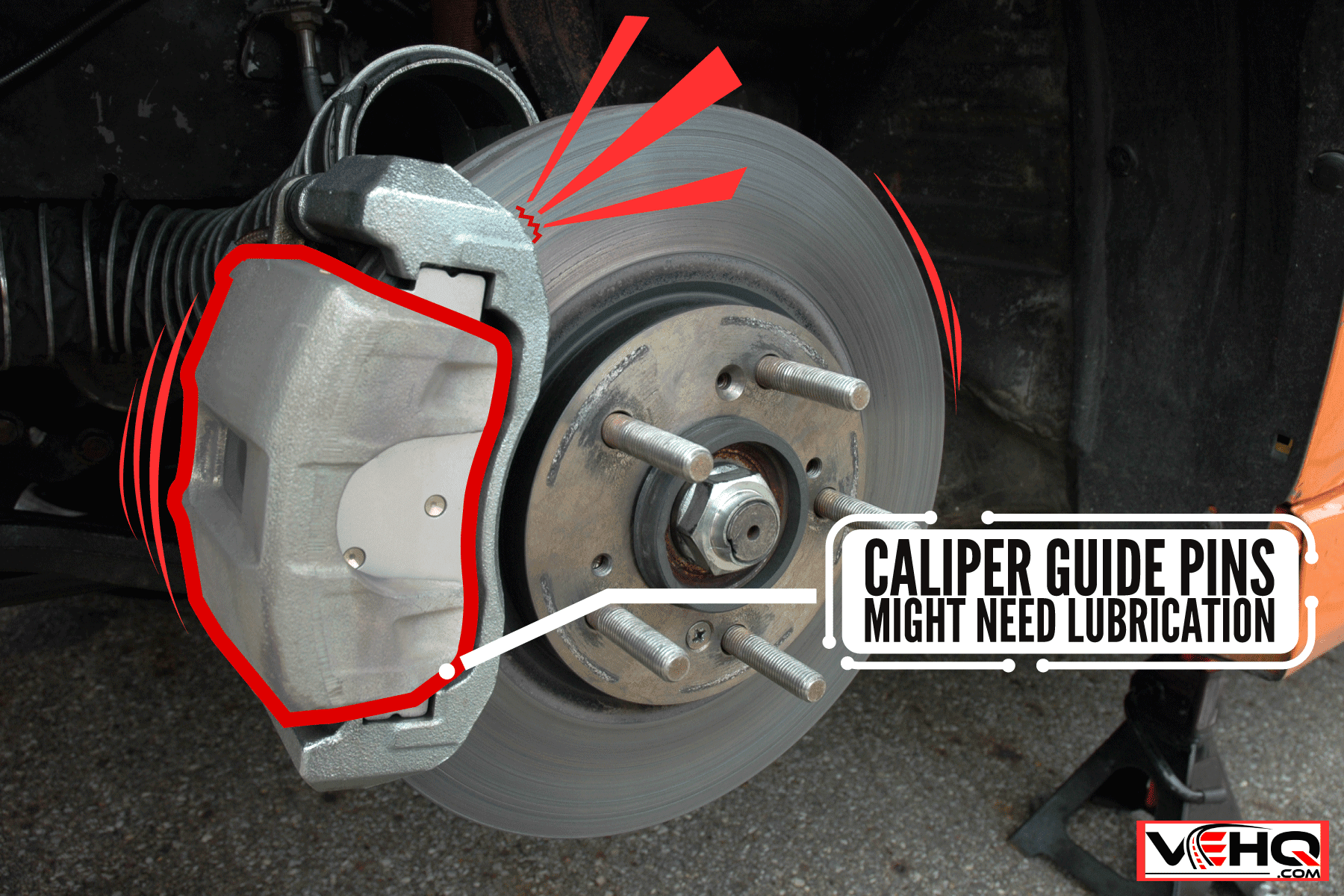
Types of Braking System In A Car
A car's braking system is important because it allows you to stop safely. Without braking, you would go flying forward at full speed. It sounds fun though but you can only do it once!
A car has two types of braking systems: the drum brake and the disc brake.
1. Drum brake system
A drum brake is a friction brake system that consists of a brake shoe or a brake pad attached to a rotating cylinder called a drum, which rotates with the wheel. The brake shoe or pad exerts a force on the drum causing the drum to slow down.
When you press on the brake pedal, the master cylinder sends brake fluid to activate the wheel cylinders.
The hydraulic pressure from the wheel cylinders pushes on the pistons, causing them to expand and push on the brake pads and apply friction against the brake drum, slowing the car.
The drum brake works best in situations where the vehicle is traveling at a low speed.
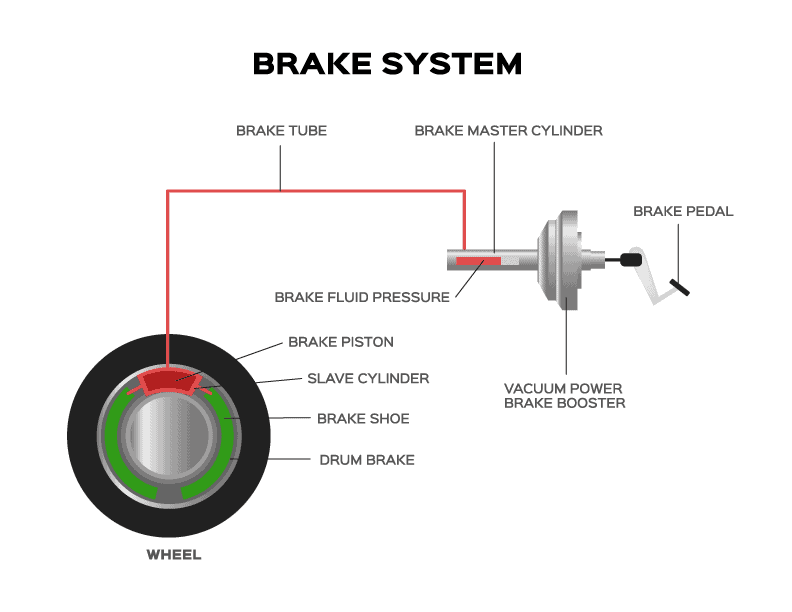
2. Disc brake system
A disc brake is a friction brake system that consists of a brake pad attached to a fixed part called a rotor that rotates with the wheel.
A disc brake works by applying pressure to the rotor causing it to slow down or stop. The pressure is transferred from the caliper to the brake pad and then the rotor.
In addition, the brake pads are made from a variety of metals bonded with resin. The brake pads are connected to the caliper by a number of pins. The caliper is attached to the steering knuckle and is held in place by a number of bolts and nuts.
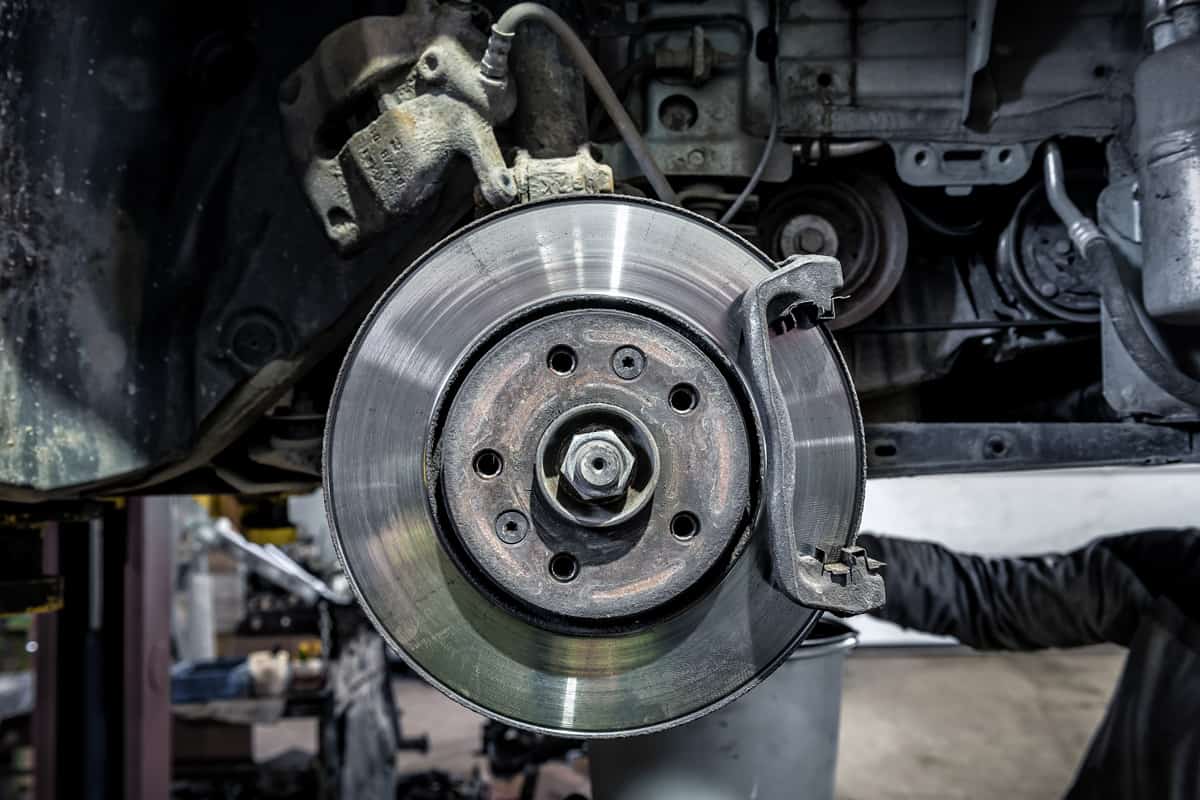
What is a caliper?
A caliper is a brake component that attaches the brake pads to the brake rotor. The caliper contains the pistons that push against the brake pad to force them into frictional contact with the rotor.
How are calipers made?
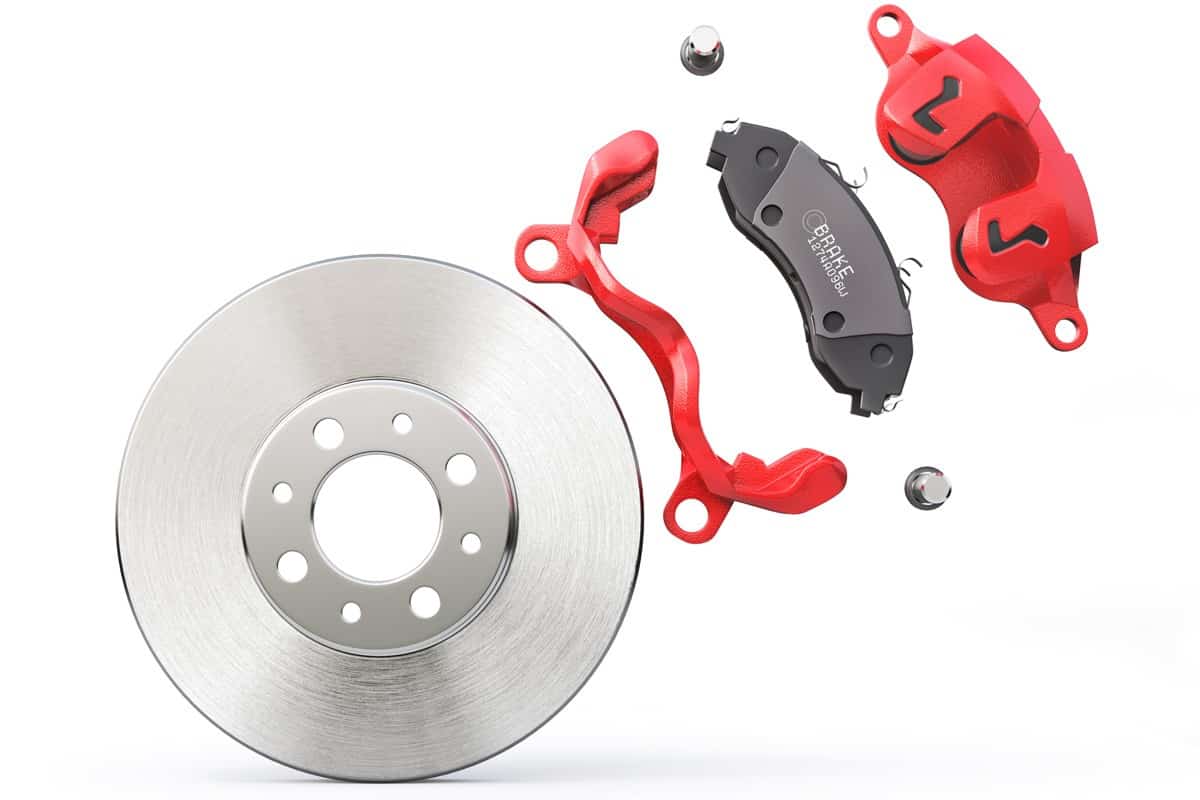
The process of making a brake caliper begins by machining a solid bar of steel and then hardening it. Then, holes are drilled where the pins will go. The pins are then inserted into the caliper, and the caliper is completed by welding or brazing the ends of the caliper together.
Where are brake pads attached to?
Caliper guide pins are used to hold the brake pads against the rotor during braking. If you remove the calipers and take a look at the brake pads, you'll see that they have slots or holes in them.
The caliper guide pins fit into these slots, preventing the brake pads from moving out of position on the rotor.
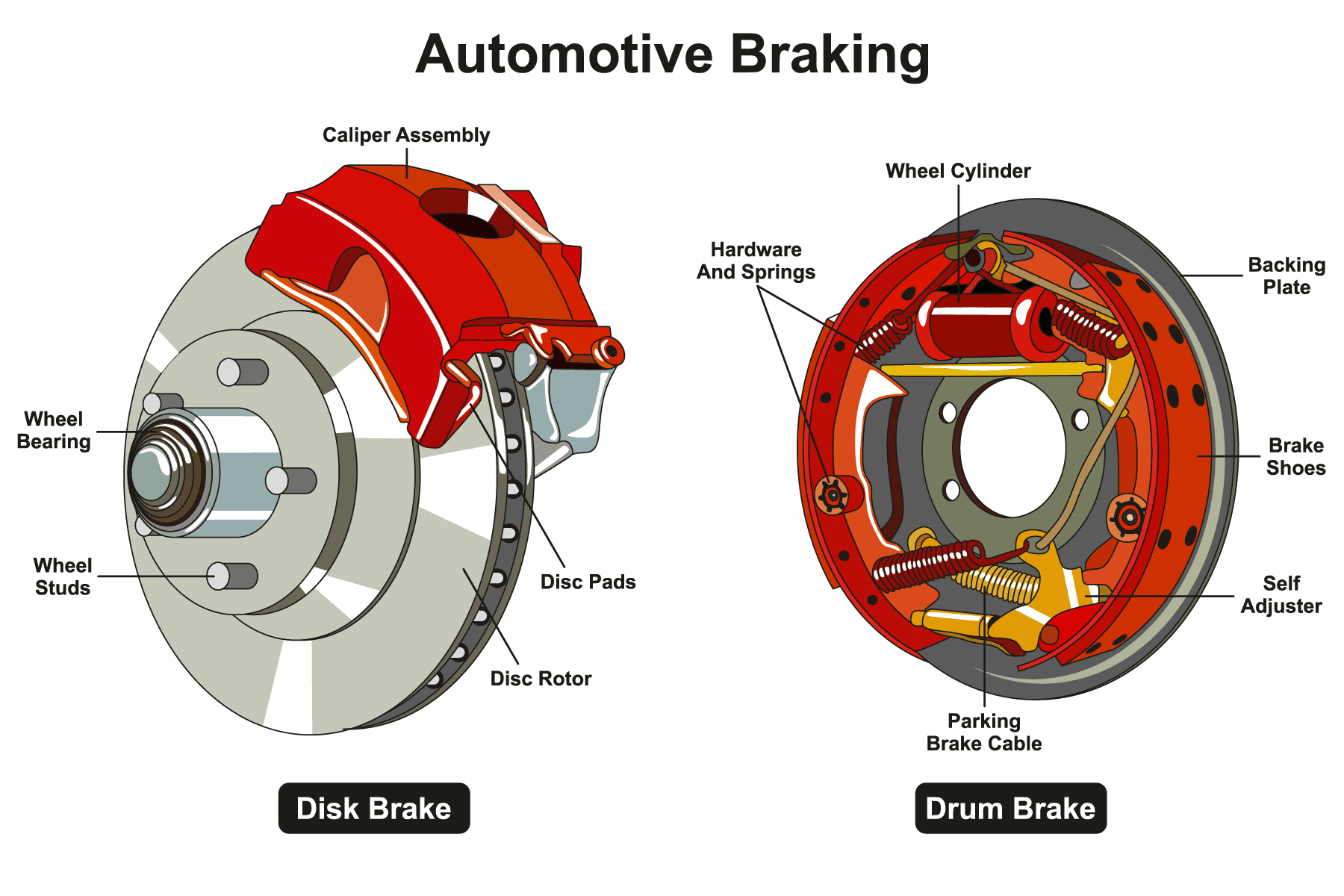
Creaking Noise Coming From Drum Brake Or Disc Brake?
The creaking noise sounds like a door that is in need of repair. If you hear this noise, it is probably the result of a bad hinge or a hinge that has lost its lubrication over time.
This is because the knuckles and the pin are rubbing against each other as the door swings open and shut.
Similarly, this should give you an idea that the creaking sound in your brake system must be coming from the disc brake. Just like a door hinge, a disc brake system has caliper pins that go to the rotor through slots.
How To Fix Creaking Noise In Your Disc Brake
The braking system is responsible for maintaining your vehicle’s velocity in a controlled manner. It is important to maintain the integrity of this system for obvious reasons.
If the brake system in your vehicle begins to make an unpleasant creaking noise, this can be a warning sign that something needs to be checked out. Here are the steps to follow:
1. Remove the front wheels
First, you need to loosen the bolts holding the wheel in place, then you can gently lift the wheel up. Remove all the nuts and bolts from the hub.
2. Remove the caliper
The caliper is held on the rotor by a number of retaining bolts. To release these, remove the caliper retaining bolts using a socket wrench and slide the caliper away from the rotor.
Using the brake hose as a cord to hang the caliper is a disaster in the making. If you plan on hanging the caliper, you can use a cord or anything that is sturdy enough to support the weight of the caliper.
3. Take the brake pads out
You can remove the brake pads by dislodging them with a flathead screwdriver. The pads will come off easily.
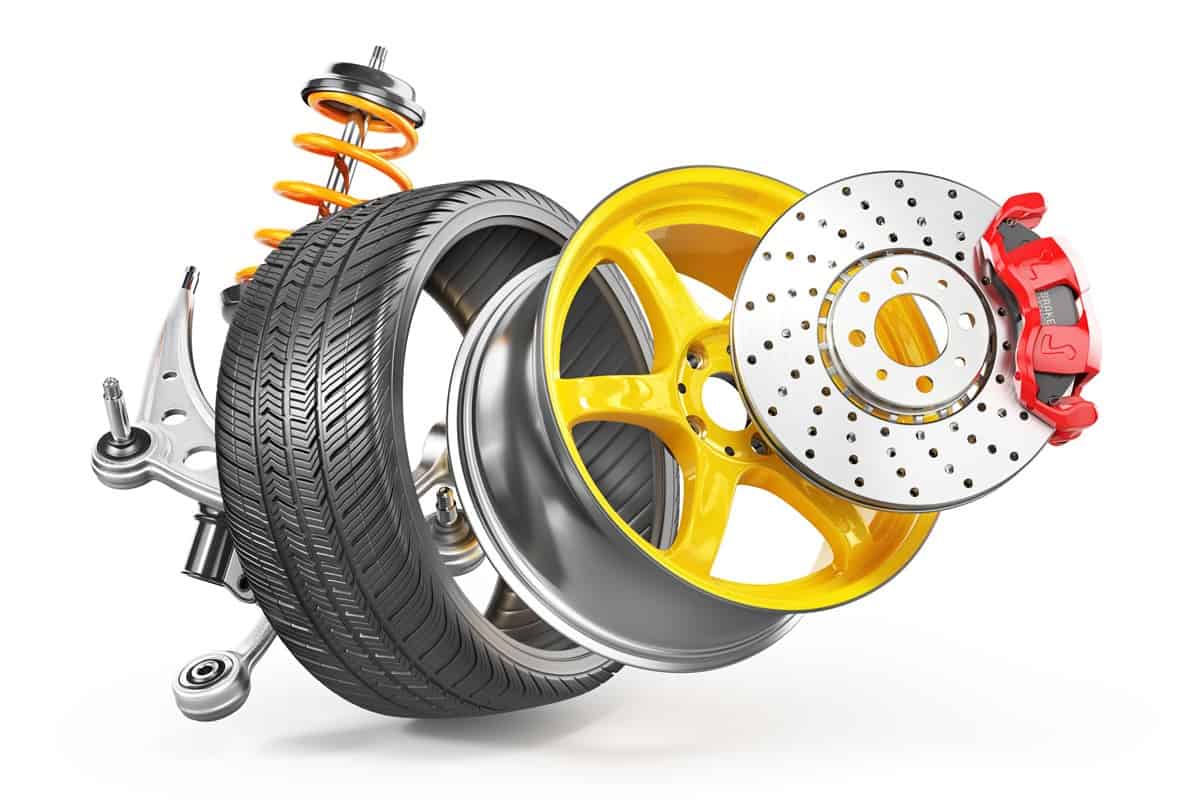
4. Separate the caliper
The caliper should slide back and forth smoothly. If it's stuck, then you have found the problem.
The caliper has two parts: the mounting frame and the area where the piston and the pads are contained. You need to separate these two parts so you will have the caliper guide pins exposed for relubrication.
You can pry them off using a flathead screwdriver, but gently. Once the caliper is separated into two, it will be easy to lubricate the pins. But before you lubricate the pins, make sure you clean them first.
5. Clean the caliper
Remove any grime that may have accumulated on the pins and holes. Wipe off what's left of the old grease on the pins using a small piece of cloth or rag. Once the pin surface is clean and dry, spray a brake cleaner on the surface of each pin and on the holes too.
Check out this brake cleaner on Amazon
6. Apply brake lubricant
Take a small amount of brake lubricant and apply it to the pins. Brake lubricants help in reducing friction and wear between two surfaces in relative motion. In this case, the caliper pins when in contact with the rotor whenever the brake is applied.
Once done, you can reinstall and fit everything back together in the reverse order. You may watch the video below to see the complete process in action:
Check out this brake lubricant on Amazon
Why Is The Front Of My Car Creaking?
Creaking in the front end of a vehicle can be a sign of a lot of different things. Sometimes, it can indicate a problem with the engine or transmission. Other times, it may just mean that your strut mount bearings have failed or a fault in the tie rods and ball joints.
However, if the front end of your vehicle seems to be creaking a lot more than usual, you may have to check your suspension system for wear and tear.
You can try to find any loose links, bushings, or other suspension components by looking in your owner’s manual and checking under your car for possible clues.
Also, you can test your front suspension system by driving your car over small bumps and hills.
If you don’t find anything wrong with the system, it may be time to change your shock absorbers or struts. This may take some time and cost, but it can make your car last longer.
Can I Spray WD40 On My Brakes?
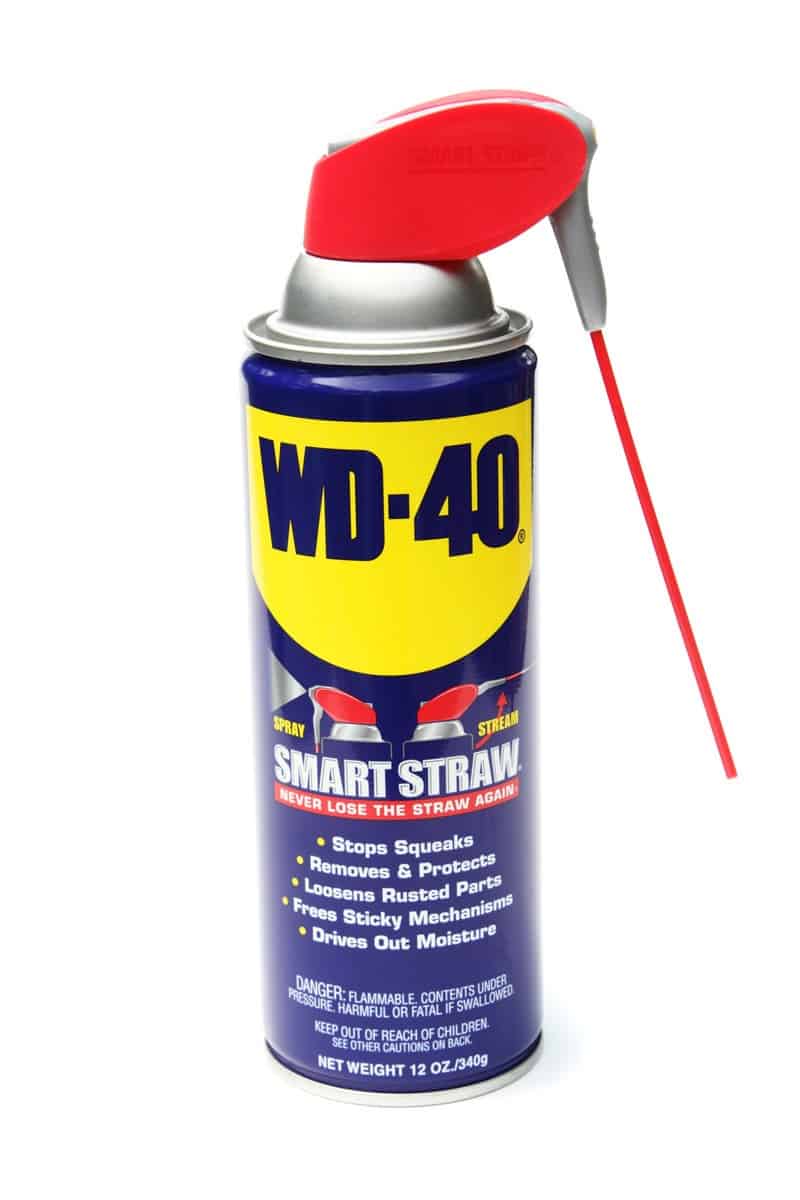
WD40 is a popular household item that people often use for all sorts of purposes. Although this popular petroleum base product has many benefits, it also poses risks.
While WD40 is inexpensive, it can be dangerous if you use it in the wrong manner, as it can reduce the effectiveness of the braking system. To ensure that the best performance is achieved, use WD40 sparingly and correctly.
When it comes to applying WD40 to your car’s brakes, it is recommended that you follow the manufacturer’s guidelines to avoid potential issues.
But if you’re still determined to spray WD40 on your car’s brakes, do so in moderation and only after consulting with a mechanic who is well-trained in auto maintenance.
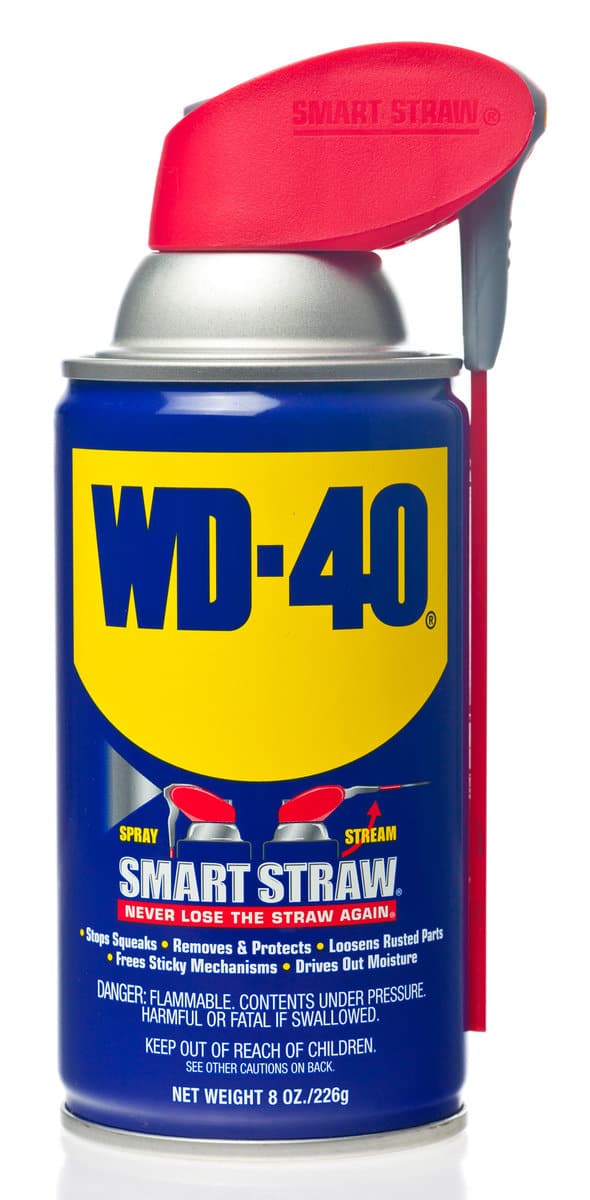
Repair/Replacement Costs Of Creaking Brakes
If you hear squeaking brakes, it could be one of many potential issues that may require a visit to the mechanic. A squeaking disc brake can be caused by worn brake pads, warped rotors, or a damaged brake hose.
The problem can also originate from a misaligned brake master cylinder.
You can expect to pay between $80 to $115 for a general inspection. Repair and labor costs are dependent on your car's model. It can go as much as $300 for a complete restoration.
In Closing
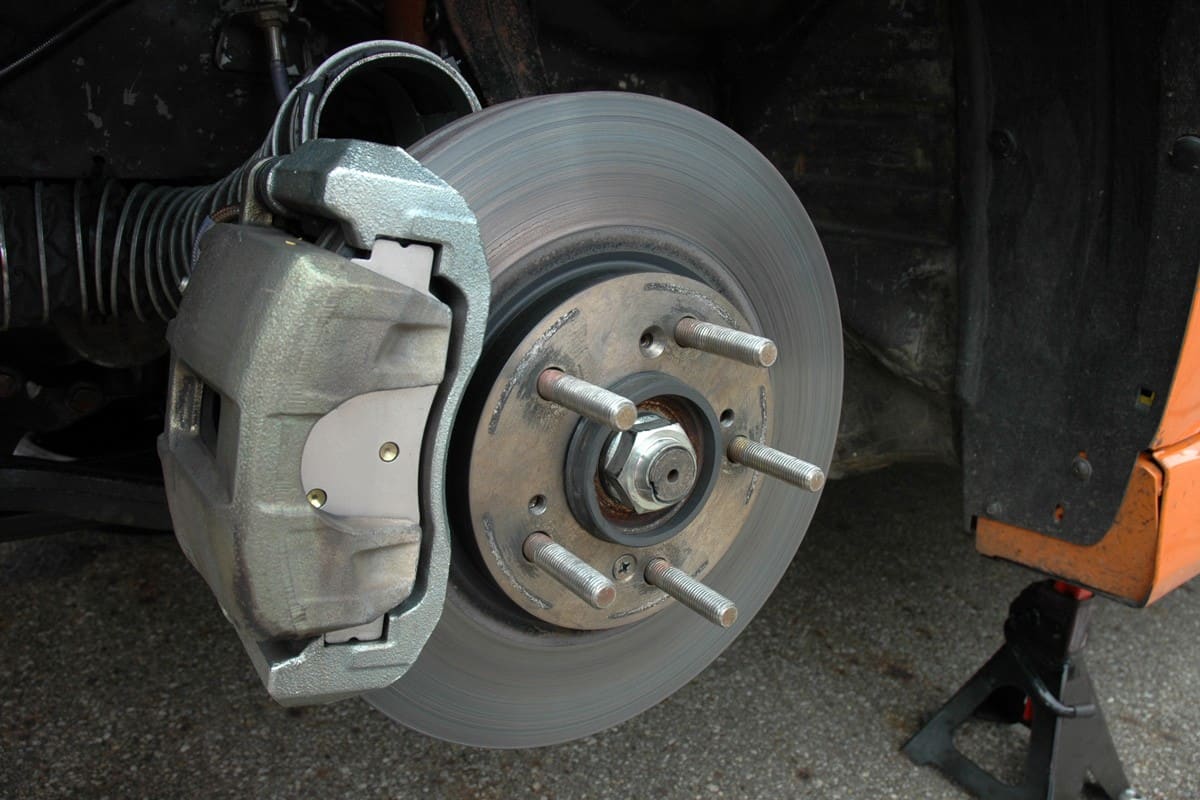
A creaking noise is almost always an absolute indicator that there is lubrication lacking somewhere. The question of where that creaking noise comes from can be difficult to ascertain, but a creaking noise when applying brakes should give you an idea there must be some metal parts in the braking system that need lubrication.
You might also like:


